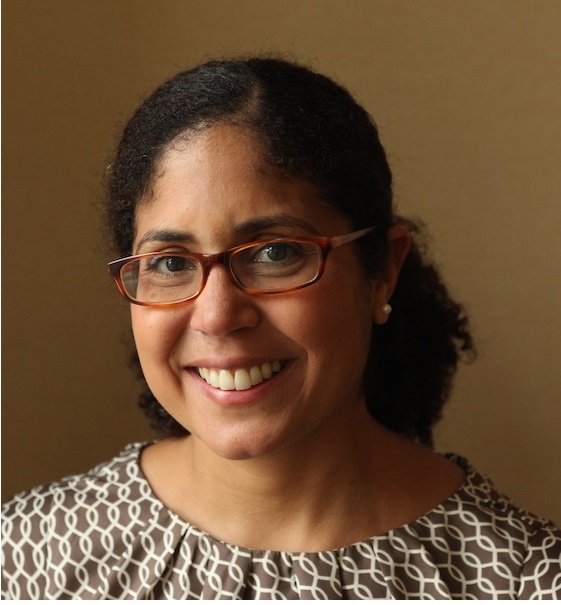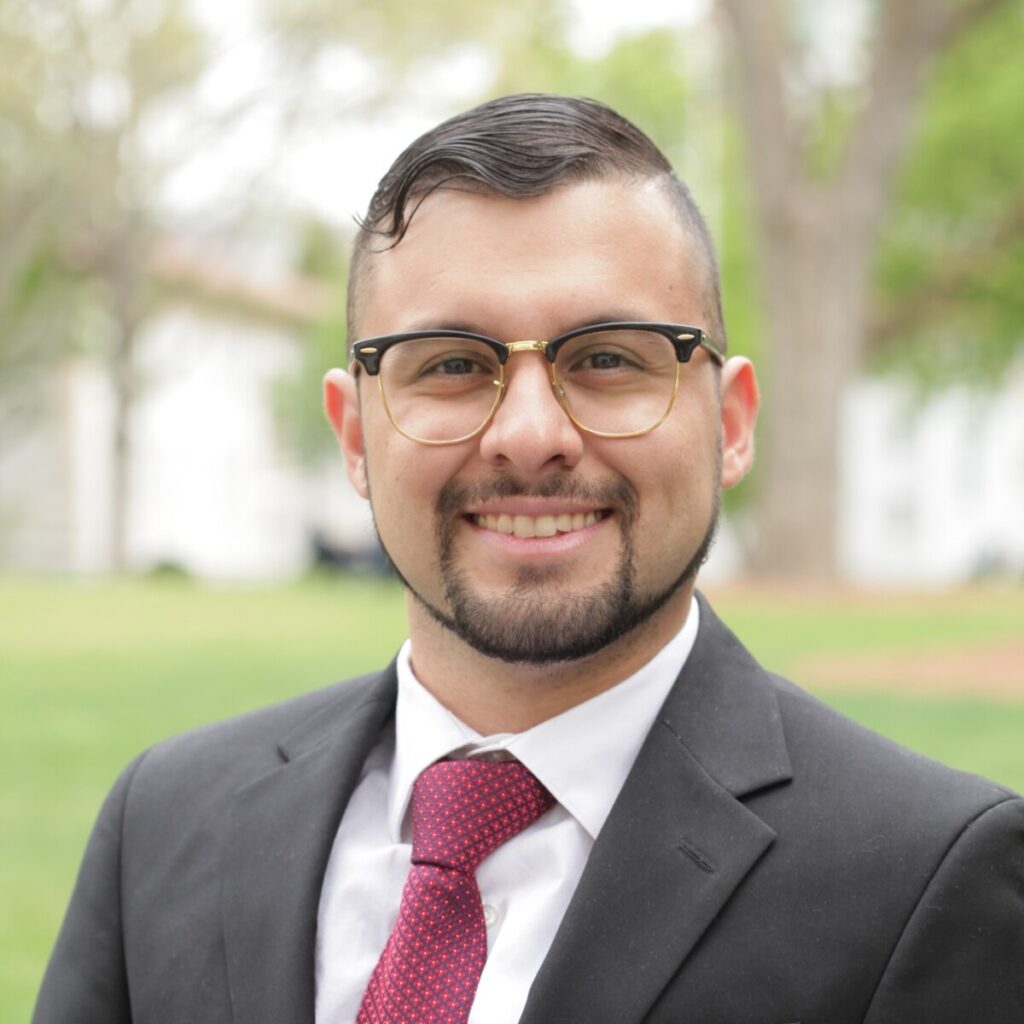
Shakira Suglia
Professor
Faculty, Epidemiology
Rollins School of Public Health, Emory University
Dr. Suglia’s research examines the impact of social determinants, focusing on violence, housing and neighborhood factors on health across the lifecourse. She is particularly interested in learning how these social factors can affect health through a stress pathway. Her current research examines how stress stemming from multiple social factors impacts cardio-metabolic health outcomes among Puerto Rican young adults living in the South Bronx, NY and the San Juan metro area in Puerto Rico. In this ethnically homogenous population living in two different social contexts, she will examine both factors that exacerbate the social stress and cardiometabolic health relation but also factors that may buffer the impact of stress on health. Dr. Suglia also leads the Disparities in Biological Aging study, part of the Child Health and Development Studies which examines the associations of childhood and adult socioeconomic status and social stressors on methylation age and telomere length in adulthood. This work can extend our understanding on how stress ‘gets under the skin’ to alter cardiometabolic health and other chronic health conditions.
Areas of Interest
- Adolescent Health/Child Health
- Cardiometabolic Diseases
- Chronic Diseases
- Community Health & Development
- Social Determinants of Health
Affiliations & Activities
Member, American Psychosomatic Society
Member, Society for Epidemiologic Research
Member, American Heart Association
Member, The Obesity Society
Email Dr. Suglia here.
Follow Dr. Suglia on Twitter @ShakiraSuglia
DOCTORAL STUDENTS

Sarina Abrishamcar, MPH
Doctoral Student, Epidemiology
Rollins School of Public Health, Emory University
Sarina Abrishamcar is a doctoral student in the Department of Epidemiology. She received her B.S. in Pharmacology from the University of California, Santa Barbara and her MPH in Epidemiology with a certificate in Genetic and Molecular epidemiology from Emory University’s Rollins School of Public Health. She is interested in how environmental and psychosocial exposures affect health outcomes across the life course through epigenetic and other omics mechanisms. She is working with Dr. Suglia investigating the effects of immigration stress on epigenetic aging in the Hispanic Community Health Study.
Email Sarina Abrishamcar here.
Follow Sarina Abrishamcar on Twitter @sarinaaaa_97.
Connect with Sarina Abrishamcar on LinkedIn here.

Jasmine Ko Aqua, MPH
PhD Student, Epidemiology
Rollins School of Public Health, Emory University
Jasmine’s research interests are at the intersection of immigrant health and social epidemiology. She is interested in both the immigrant experience (migration, acculturation, racial discrimination, etc.) and immigration policies and how these impact health outcomes, mainly through a stress pathway. As a supporter of the undocumented student movement, she is also passionate about applying a human rights framework to address the health consequences of documentation status.
Email Jasmine Ko Aqua here.
Follow Jasmine Ko Aqua on Twitter @jasminekoaqua

Yinxian Chen
PhD Student, Epidemiology
Rollins School of Public Health, Emory University
Yinxian Chen is a PhD student in Epidemiology at Emory Rollins School of Public Health. He received his MB in Preventive Medicine and Public Health at Sun Yat-sen University, China, and his MS in Epidemiology (neuro-psychiatric track) at Harvard T.H. Chan School of Public Health. He is interested in how life-course adversity, violence, and trauma affect physical health, especially cardiometabolic health, as well as their underlying biological mechanisms (e.g., stress biomarkers, sleep disparities, epigenetic alteration, and gene-environment interaction). He is also passionate about applying cutting-edge causal inference and life-course modeling methods to address the current gaps in his areas of interest.
Email Yinxian Chen here.
Connect with Yinxian Chen on LinkedIn here.

Jorge Gonzalez Mejia, MPH
PhD Student, Epidemiology
Rollins School of Public Health, Emory University
Jorge’s research interests lie at the intersection of Hispanic and immigrant health, with a specific emphasis on the role of stress in diabetes and cardiometabolic outcomes across the lifespan. Specifically, he focuses on exploring intergenerational and intragenerational psychosocial risk factors among Hispanic populations, and the role of potential mediators in reducing the risk of diabetes-related outcomes. An integral part of his research also involves applying epidemiological methods to evaluate and promote evidence-based interventions aiming to reduce barriers and enhance health promotion, prevention, and adherence to diabetes care in the US and abroad.
Email Jorge Gonzalez Mejia here.
STAFF

Sheroi Johnson
Data Analyst, Department of Epidemiology
Rollins School of Public Health, Emory University
Sheroi is a graduate of Rollins School of Public Health in 2021 in the epidemiology department. She is passionate about promoting health equity with and diverse research background in areas such as racial/ethnic disparities, cardiometabolic outcomes, disparities in sleep, and household transmission of SARS-CoV-2 and influenza. As a data analyst, she works with Dr. Suglia and her team in conducting various analyses for the Hispanic Community Health Study.

Natishkah Knox
Public Health Program Associate, Department of Epidemiology
Rollins School of Public Health, Emory University
Natishkah graduated from Rollins School of Public Health in 2019 with a focus on global epidemiology. She has always viewed research as an important tool for understanding and improving health among underserved populations and has recently focused her interests on understanding the role of social context and factors on health outcomes. As Public Health Program Associate, she contributes to the work of the SDOH-LIFE Research Group to examine the impact of social determinants on health across the life course.

Sarah Tarr
Research Administrative Coordinator, Department of Epidemiology
Rollins School of Public Health, Emory University
Sarah is the lead coordinator of a behavioral intervention pilot study that focuses on implementing healthy lifestyle habits for post-partum mothers. She earned her MPH with a concentration in Epidemiology at Georgia State University in 2022, and received her BA in Anthropology from The University of Florida. She has a strong passion for understanding how social determinants of health contribute to the development of disease. Other areas of interest include social epidemiology, global health, racial inequalities, and health disparities.
COLLABORATORS

Ayana K. April-Sanders, PhD, MPH
Instructor, Department of Biostatistics & Epidemiology
Rutgers School of Public Health
Dr. April-Sanders’ research investigates the influence of social and early life factors in shaping cardiometabolic health trajectories of minority and immigrant populations in the US. Specifically, her program of research focuses on understanding how sources of stress affect biological and psychosocial pathways that influence cardiometabolic disease risk across the life course.
Follow Ayana April-Sanders on Twitter @AApril_Sanders

Dr. Elizabeth Clausing
Assistant Professor of Anthropology, School of Global Integrative Studies
Center for Brain, Biology, and Behavior University of Nebraska, Lincoln
Dr. Elizabeth Clausing is interested in how subjective measures of stress (psychosocial stress) associates with objective measures of stress (epigenetic aging, DNA methylation, and hair cortisol). She is particularly interested in how stress can impact the body through epigenetic inheritance via DNA methylation in mothers and children. She is especially interested in how early childhood experiences (e.g., low socioeconomic status, childhood adversity) can affect health in adulthood. Dr. Clausing received her undergraduate degree in Honors Integrative Biology and Anthropology at the University of Illinois, an MA in Anthropology from University of California San Diego, and her PhD in Biological Anthropology (specializing in Genetic and Epigenetic Anthropology) from the University of California San Diego.

Danielle Crookes, DrPH
Assistant Professor
Bouvé College of Health Sciences, Department of Health Sciences, Northeastern University
College of Social Sciences and Humanities, Department of Sociology and Anthropology, Northeastern University
Dr. Danielle Crookes is an Assistant Professor at Northeastern University. As a social epidemiologist, her research examines structural, political, and social factors that shape the health of communities of color in the US, especially immigrant communities. Her research focuses on understanding how immigrant-related policies, racism and xenophobia affect the health of immigrant and subsequent US-born generations.
Email Danielle Crookes, DrPH here.
Follow Danielle Crookes, DrPH on Twitter @DaniCrookes

Dr. Rebecca Jones-Antwi
Assistant Professor
Department of Public Health, Baylor University
Dr. Rebecca Jones Antwi’s work focuses on understanding the relationship between places and health. The major themes center on understanding obesity dynamics across the lifecourse and using migration to evaluate the role of environments on diet and chronic disease.
Follow Dr. Rebecca Jones on Twitter @drjones_antwi.
Multidisciplinary Research Training to Reduce Inequalities in Cardiovascular Health (METRIC).

Kaitlyn Stanhope
Assistant Professor, Epidemiology,
Rollins School of Public Health, Emory University
Dr. Kaitlyn Stanhope’s work is focused on understanding how stress, resilience, and adversity across the life course are embodied in women’s health, primarily during and following pregnancy. Using an Ecosocial, life course perspective, Dr. Stanhope’s current work with Dr. Suglia is focused on understanding how adversity across the life course may increase risk of incident cardiometabolic dysfunction during pregnancy and decline in cardiometabolic function following pregnancy. Dr. Stanhope also works with community groups and clinicians to test the impact of interventions to improve maternal outcomes among communities disproportionately impacted by structural adversity, particularly in the Southeast.
Email Kaitlyn Stanhope here.
ALUMNI

Brian Batayeh
Implementation Research Technical Advisor
IREX
Brian Batayeh graduated from the Rollins School of Public Health in 2018 focusing on violence prevention and understanding its lifecourse impacts. While working as our program associate, his research focused on how different stress exposures and responses to stress contribute to cardiometabolic health. He now works at the International Research and Exchanges Board as the Implementation Research Senior Technical Specialist for positive youth development initiatives.

Dr. Alison Cammack
Health Scientist, Suicide Prevention Team
National Center for Injury Prevention and Control, CDC
Alison Cammack, PhD, MPH was a postdoctoral fellow in the SDOH-LIFE research group, where she centered her research on the lifecourse impact of early life adversity with respect to cardiometabolic outcomes and associated behavioral risk factors, with a focus on elucidating factors that promote resilience. She is currently a Health Scientist on the Suicide Prevention Team in the National Center for Injury Prevention and Control at CDC. On the Suicide Prevention Team, she is involved in diverse research and data projects and is particularly interested in disproportionately affected populations, the role of community-level resilience factors, and the intersection between adverse childhood experiences and suicide. She also serves as a Science Officer for CDC’s Comprehensive Suicide Prevention Program and provides subject matter expertise.
Email Dr. Alison Cammack here.
CDC’s Suicide Prevention webpage here.

Ye Ji Kim, PhD, MPH
Postdoctoral Fellow, Evidence for Action
Dr. Kim graduated from Rollins School of Public Health in 2023 and her dissertation focused on understanding the social, neighborhood, and political factors that contribute to access and use of healthcare among immigrant children. She is currently a Postdoctoral Fellow at Evidence for Action (E4A), a national program of the Robert Wood Johnson Foundation. She primarily contributes to the E4A Methods Laboratory, where she assesses the use of causal inference methods in understanding racial/ethnic and health inequities.
Email Ye Ji Kim here.
Evidence for Action blogs here.

Hana Lee, MPH
Assistant Epidemiologist, Department of Surgery
School of Medicine, Emory University
Hana Lee graduated from Rollins School of Public Health in 2020 with interests in social epidemiology and spatial methods. While she was a graduate student, her research focused on understanding social contexts and determinants that shape health outcomes, specifically with regards to neighborhood social environment and the development of obesity among young adults. Hana currently works at Emory University School of Medicine.

Dr. Ryan Saelee
Ryan graduated from Rollins School of Public Health in 2021 and his dissertation was focused on racial disparities in sleep across the life course and its implications on cardiometabolic health in adulthood. He is currently a Health Scientist at the Centers for Disease Control and Prevention assisting with the COVID-19 response.

Dr. Zerleen Quader
Zerleen’s research focuses on how social determinants of health such as race/ethnicity, socioeconomic factors, and structural forces play a role in childhood health behaviors and development of obesity. Her current dissertation work examines the role of schools in childhood obesity, and the intersection between education and health.
